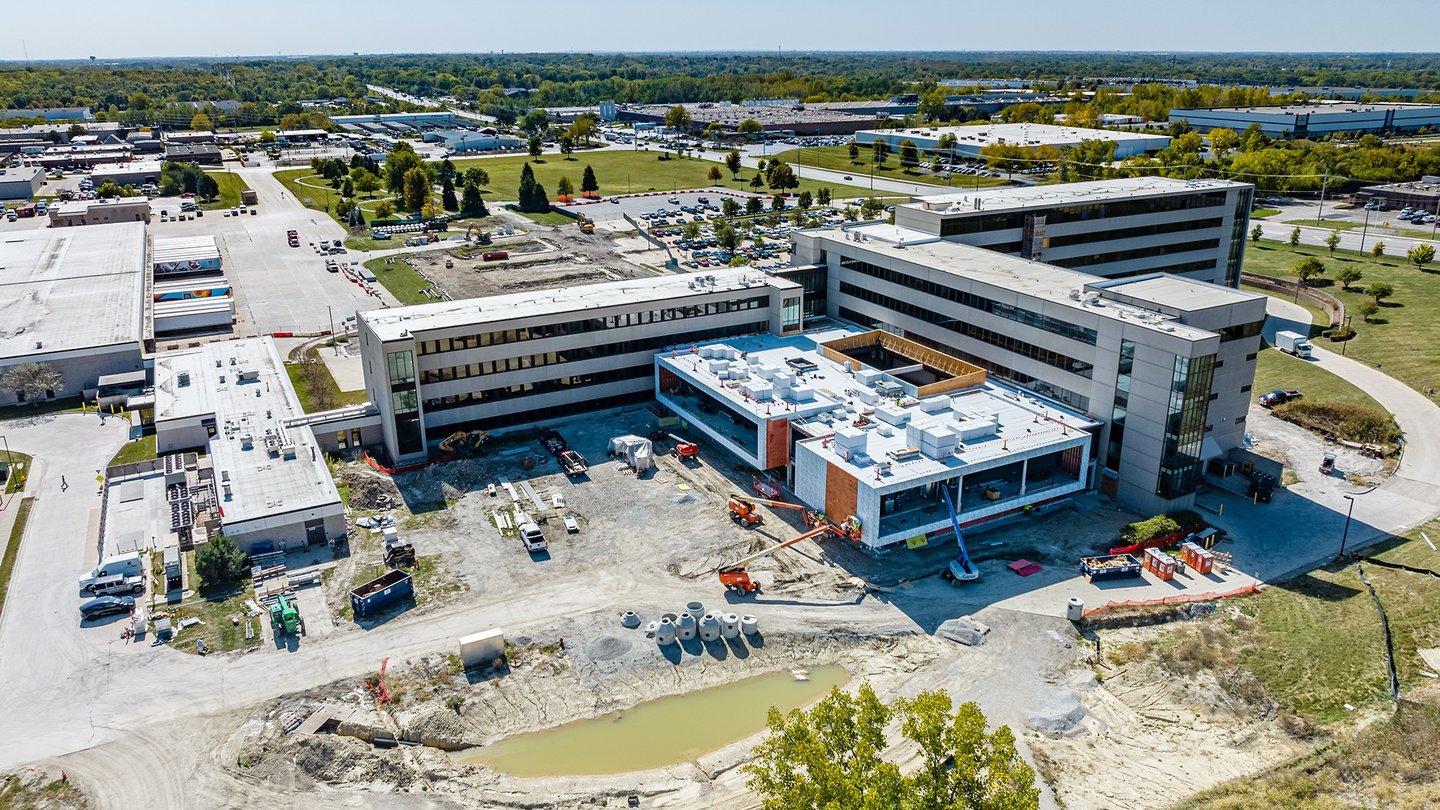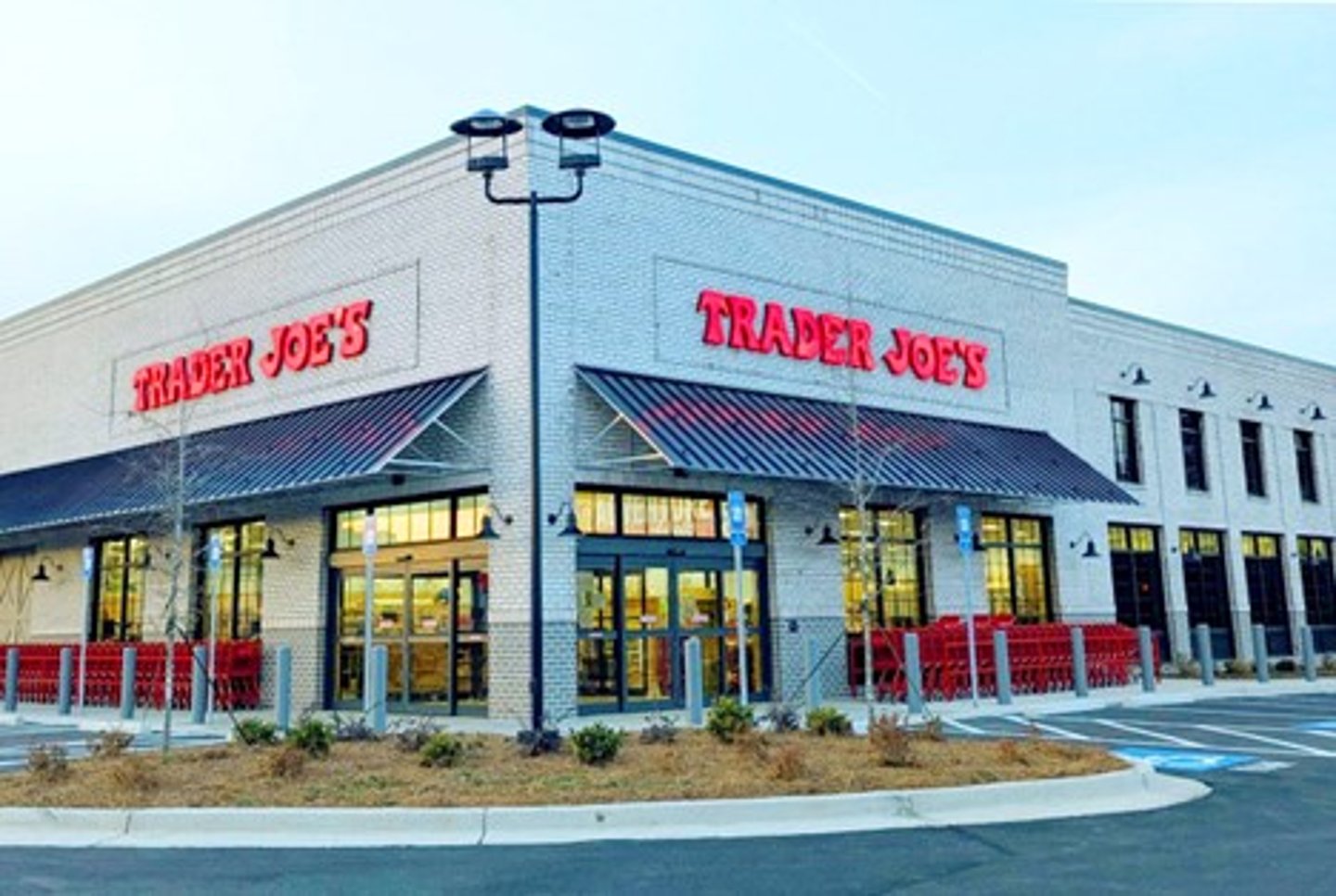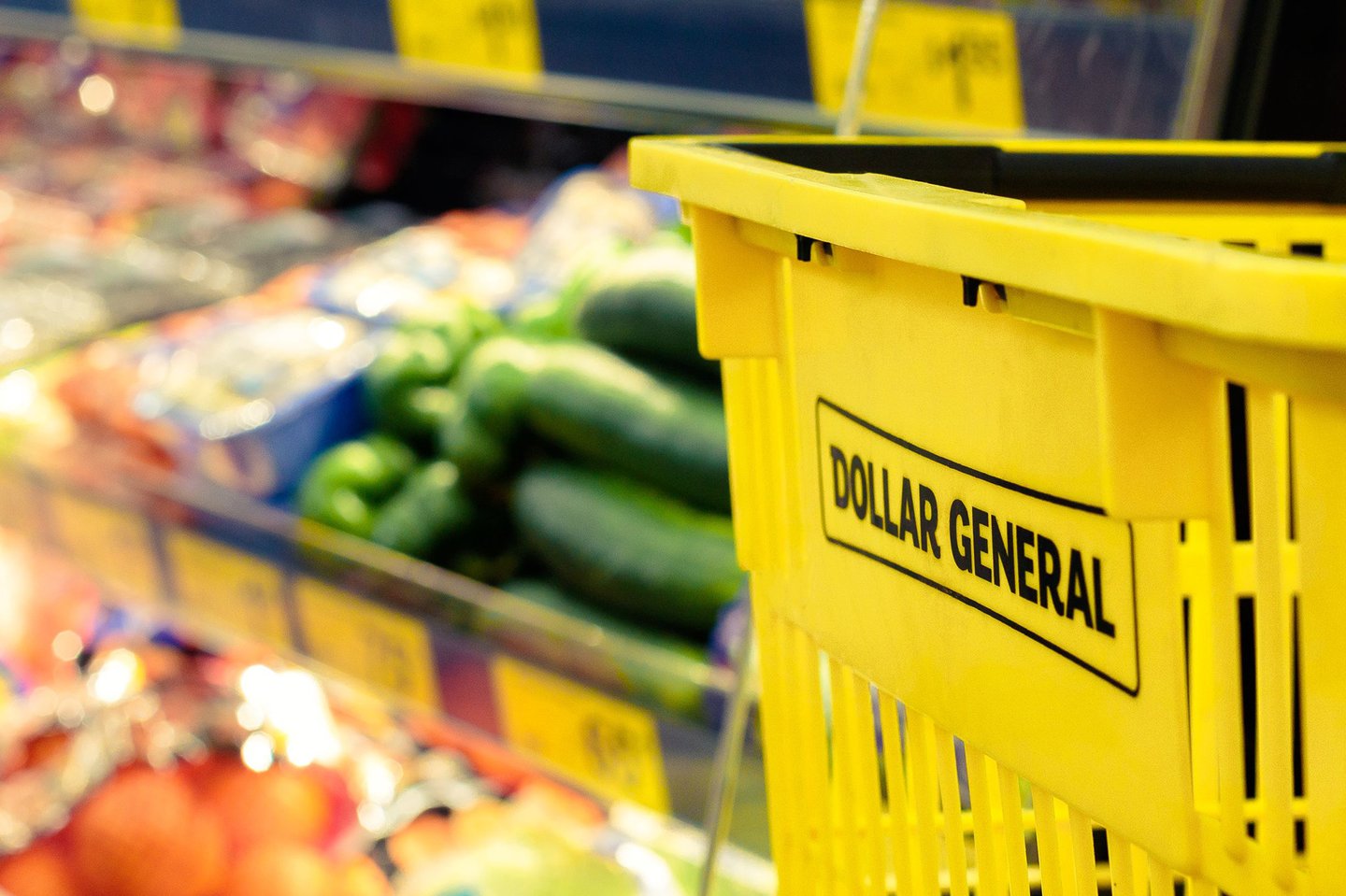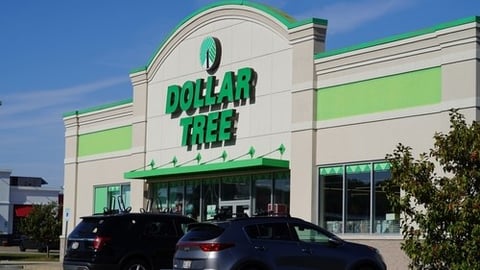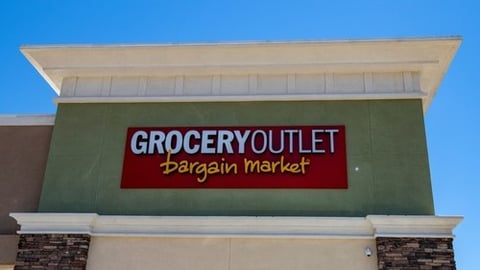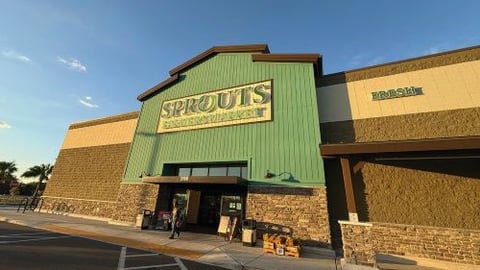Inside the Value Boom Happening in Grocery
ALDI’s value proposition – for its customers and its own operation – is based on the right balance of highs and lows. On the high side, the retailer continues to gain in traffic, locations, dollar sales and product variety, while on the low side, it’s resonating with a larger cross-section of shoppers because of its affordable prices, pragmatic assortment and easy-to-navigate store formats.
To be sure, shopping at the German-owned value-centric chain has a certain cachet, as customers joke about keeping stacks of quarters in the car dash to unlock carts and are often seen swapping quarters with other patrons coming out of the store. In online fan pages, the grocer’s loyal followers chat about seasonal finds, their favorite products, cool recipes to try, and more.
“The ability to excite customers is a big part of this,” affirms Dave Rinaldo, president of ALDI U.S., in a recent sit-down interview with Progressive Grocer. “That’s where you see items like our charcuterie range or our organic produce that have really unlocked the magic and the level of customer engagement. It’s hard to even quantify or explain to someone – it’s exciting. People come out with items that they didn’t know that they were coming in for, with great value on a premium item or specialty item, especially at a time like this.”
Behind shared sentiment from a qualitative perspective, the quantitative growth of the value chain is real. According to Santa Cruz, Calif.-based location analytics firm Placer.ai, visits to ALDI stores rose 15.4% from November 2023 to November 2024, and traffic was up 3.8% month over month from October to November. ALDI U.S. came in at No. 28 on The PG 100, Progressive Grocer’s 2024 list of the top food and consumables retailers in the United States.
In its first-ever “(Un)Wrapped Report,” released in December 2024, ALDI reported that it opened more than 120 new stores in 2024 and attracted nearly 20 million new shoppers. In addition, the grocer launched more than 2,000 new ALDI Finds products during the recently concluded calendar year.
Delving Into ALDI’s Magic Formula
ALDI’s leaders understand that the organization has a unique approach and execution.
“To me, the foundational principles of what we do and how we run our business – being intentional about how we create value day in and day out for our customers – and the juxtaposition of how much we’ve evolved while still holding true to those principles, is one of the things that I’m most proud of in my role for the time that I’ve been with ALDI,” asserts Rinaldo.
He continues: “I still have moments where I say, ‘I don’t believe where we are now!’ and how much this brand is as adopted and loved as it is. At the same time, as a company, we don’t stop much to pat ourselves on the back because we have a lot of work to do. We know that we can never stop investing in running the most extraordinarily efficient operation that we can and providing the best value for customers. The strength of that drive is that it doesn’t allow us to get distracted.”
That drive is evident as ALDI continues to scale up at almost every level. During a keynote speech at the Private Label Manufacturers Association (PLMA) annual trade show in Chicago this past November, Rinaldo confirmed that ALDI’s five-year growth plan includes more than $9 million in investments, plans for more than 800 stores, and entry into such new markets as Las Vegas. Currently, ALDI operates about 2,400 stores in 38 states, staffed by 46,000 or so employees; the company is also in the midst of transitioning hundreds of Winn-Dixie stores into ALDI stores, following its acquisition of Jacksonville, Fla.-based Southeastern Grocers Inc. in 2023.
At the PLMA event, Rinaldo underscored the intentional points of difference that make ALDI a destination, such as the average 12,000-square-foot store size, electronic shelf labels that save time and resources, multiple bar codes on products that enable faster checkout, a smaller curated selection of products, and, of course, the quarter-based cart system.
“We carry a small, controlled and curated list of less than 2,000 SKUs,” he explains to PG. “We could have given into temptation and gone to 3,000, 4,000 or 5,000 SKUs, but we knew it would take away from how we want to run our model and how we deliver that value for our customers. We also fought the temptation of store size – we could have tripled or quadrupled the size of our stores, but it wouldn’t have been us. And we would have never changed our low-price position. We do that as an organizational obligation – it’s in our DNA. The last thing that hasn’t changed is quality. We believe that price brings people in the door, but we know that it’s quality that has them coming back.”
Mirroring the pace of work at its updated and new stores, the retailer is making improvements to its corporate headquarters as well. The U.S. campus, in Batavia, Ill., is undergoing a renovation that includes the refurbishing of three existing office buildings and the design and construction of a fourth structure.
“The new designed space is going to be great,” enthuses Rinaldo. “It’s going to allow our teams to work and collaborate in different ways. We’re excited for that development. I’m looking forward to that at some point in the next year.”
To his point, the major investments in stores and its corporate offices exemplify ALDI’s commitment to creating a work culture that espouses a “rising tide lifts all boats” philosophy.
“We’ve always been a company that’s believed in paying industry-leading wages,” notes Rinaldo, “but we want to empower our teams to make decisions to drive our business forward. We retain people disproportionate to industry. And there are many, many, many people like me who have spent decades in this organization. Having that retention and having people understand where the business has come from, it’s a tremendously valuable thing, and it’s as important now as it ever has been.”
As for 2025 and beyond, these holistic tactics are keeping ALDI and its Aldi Süd parent organization poised for more impressive performances, with the company reporting gains in every income demographic in the United States.
“I’ve been on this journey for 25 years, and I’ve seen us grow year after year, and certainly, the pace of our growth and success has continued to increase. That’s changed, but what we do is the core competency of ALDI – it’s our offer. We’ve been driving hard to make things high-quality and affordable, but also exciting,” Rinaldo tells PG, adding, “We’re pretty bullish about the future here.”
How Trader Joe’s and Dollar General Also Unlock Value
Macroeconomic conditions over the past few years have created a conducive environment for other value chains to expand and thrive, too. Monrovia, Calif.-based Trader Joe’s, for example, continues to successfully navigate the intersection of value, discovery and quality, much of that gleaned through its assortment of store-brand products and a planned strategy for new store openings. The retailer – owned by Aldi Nord – operates around 600 stores as 2025 gets underway.
According to data from Placer.ai, Trader Joe’s outperformed the wider grocery category in year-over-year visit growth during most of 2024. From November 2023 to November 2024, store visits were up 6.3%.
A Trader Joe’s representative tells PG that the company continues to focus on both organic and planned expansion, in terms of its physical store presence and store shelves.
[Never miss a story – sign up for Progressive Grocer's FREE Daily newsletter]
“Since Trader Joe’s began in 1967, we have been in growth mode,” says Nakia Rohde, public relations manager. “Some years, we grow more than other years, and our goal is always to bring delicious products at great values to as many people and neighborhoods as we can. The best way to do that is to open more stores. Our buyers have traveled the world searching for products we think are exceptional and will find a following among our customers.”
She continues: “To earn a spot on our shelves, each product is submitted to a rigorous tasting panel process, in which every aspect of quality is investigated in the context of the price we can offer. If a product is assessed as an outstanding value, it becomes an essential part of the Trader Joe’s shopping adventure. We want our customers’ experience while shopping in our stores to be rewarding, eventful and fun.”
Dollar General (DG) is another national retailer that aims to provide solutions for shoppers in their quest for affordability and quality. The Goodlettsville, Tenn.-based retailer continues to add new locations while touting its general-store format and the availability of fresh produce at more than 6,000 of its locations around the country. Currently, DG operates more than 20,000 stores across 48 states.
“With approximately 75% of Americans living within 5 miles of a DG, we are uniquely positioned to serve customers and communities across the country by providing access to convenient, healthy and affordable everyday essentials,” Brian Hartshorn, SVP, general merchandise manager at DG, tells Progressive Grocer. “In fact, all of DG’s stores offer the components of a nutritious meal, including proteins, grains, dairy, frozen and canned vegetables, canned fruits, and more, alongside many of the world’s most trusted brands such as Coca-Cola, PepsiCo/Frito-Lay, General Mills, Hershey, J.M. Smucker, Kraft, Mars, Nestlé, Procter & Gamble, and Unilever.”
The addition of more fresh produce has been welcomed by customers as they’ve dealt with elevated inflation over the past few years.
“Our produce set offers shoppers the top 20 items typically sold in traditional grocery stores, including a curated assortment of lettuce, tomatoes, onions, apples, bananas, strawberries, potatoes, sweet potatoes, lemons, limes, salad mixes, and more,” says Hartshorn. “DG has responded to many community requests across the country, opening new stores, adding fresh produce, or offering expanded product sets to help meet the needs of communities and their residents. In fact, the addition of fresh produce at our stores in Little Rock, Ark.; Cedar Falls, Iowa; Hitchcock, Texas; and Fruitdale, Ala.; were a direct result of customer and community feedback.”




